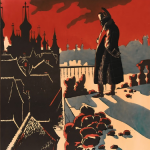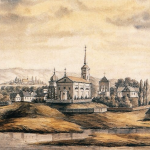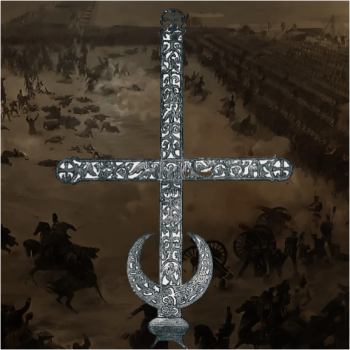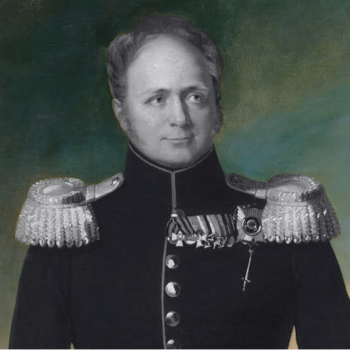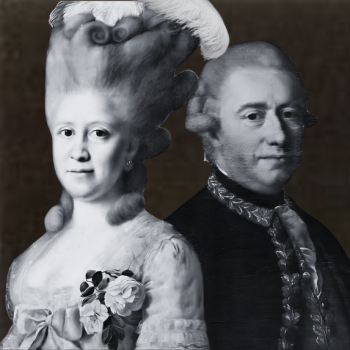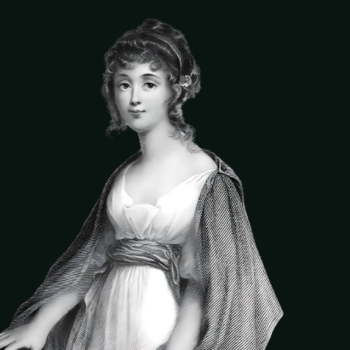A Tournament Of Shadows:
XXIII. Pestilence That Walketh In Darkness
Tsar Alexander Pavlovich stared out from the palace window in St. Petersburg, contemplating his next move. He listened as best he could to the counsel of his childhood friend, Prince Alexander Golitsyn.[1] Indeed, even Alexander Pavlovich, in the early days of Napoleon’s invasion, had plunged deep into “superstitious mysticism.”[2] The staggering losses at Borodino, however, weighed heavy on the Tsar’s mind, and with his spirit nearly broken, he almost agreed with those who labeled him a coward. “What am I before these formidable forces gathered against Russia?” “What right have I to be ruler of this Empire? What right have I to call myself the master of this valiant nation?” “Am I not predestined to expiate the sins of past generations? Is this punishment for my personal sins?” Golitsyn then opened a huge, folio-sized Bible in front of Alexander Pavlovich, but it suddenly slipped from his fingers. When it fell to the floor, it opened to Psalm 91:
He that dwelleth in the secret place of the most High shall abide under the shadow of the Almighty. I will say of the Lord, He is my refuge and my fortress: my God; in him will I trust. Surely he shall deliver thee from the snare of the fowler, and from the noisome pestilence. He shall cover thee with his feathers, and under his wings shalt thou trust: his truth shall be thy shield and buckler. Thou shalt not be afraid for the terror by night; nor for the arrow that flieth by day; Nor for the pestilence that walketh in darkness; nor for the destruction that wasteth at noonday. A thousand shall fall at thy side, and ten thousand at thy right hand; but it shall not come nigh thee. Only with thine eyes shalt thou behold and see the reward of the wicked. Because thou hast made the Lord, which is my refuge, even the most High, thy habitation; There shall no evil befall thee, neither shall any plague come nigh thy dwelling. For he shall give his angels charge over thee, to keep thee in all thy ways. They shall bear thee up in their hands, lest thou dash thy foot against a stone. Thou shalt tread upon the lion and adder: the young lion and the dragon shalt thou trample under feet.[3]
“That the Good Book opened as it did was clearly the will of God,” Golitsyn explained.
Alexander Pavlovich was much taken by the chance revelation, but his conviction was secured the following day. While attending a church service for soldiers preparing for departure to the south, he heard the same verse read at mass.
“I was directed by God to select that particular passage,” the priest told the Tsar.
This was no coincidence, the Tsar thought. It was clearly a sign from God. Though Alexander Pavlovich possessed strong spiritual inclinations, he was not particularly “religious” up to that point. He immediately dived into an intensive study of the Old Testament prophets, finding that its words poured an unknown peace into his heart and quenched the thirst of his soul. “Our Lord, in His infinite wisdom, inspired me to understand what I was reading,” he admitted. “It is to this edification, to this internal light that I am indebted.” With spiritual advice from the cadre of priests and mystics in his circle, Alexander Pavlovich began to see himself as a divinely appointed agent tasked with carrying out the will of God, especially after Napoleon’s desecration of the Moscow Kremlin, the sacred heart of Russia. Alexander Pavlovich, Tsar of all the Russias, took the words in the Book Of Daniel to heart:
So the king of the south shall come into his kingdom and shall return into his own land. But his sons shall be stirred up and shall assemble a multitude of great forces: and one shall certainly come, and overflow, and pass through: then shall he return, and be stirred up, even to his fortress. And the king of the south shall be moved with choler, and shall come forth and fight with him, even with the king of the north: and he shall set forth a great multitude; but the multitude shall be given into his hand. And when he hath taken away the multitude, his heart shall be lifted up; and he shall cast down many ten thousands: but he shall not be strengthened by it. For the king of the north shall return, and shall set forth a multitude greater than the former, and shall certainly come after certain years with a great army and with much riches. [4]
With a new level of inspiration and a sense of forgiveness for past transgressions, Alexander Pavlovich found the strength to continue the fight against Napoleon.[5] “My people and I stand united as never before,” he wrote to Bernadotte early in October, “and we would rather perish under ruins than make peace with the modern Attila.”
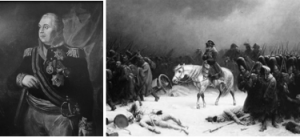
(Left) General Mikhail Illarionovich Kutuzov.
(Right) “Napoleon’s Retreat From Moscow.” (Adolph Northen.)
Napoleon occupied Moscow for over a month, impatiently waiting for the Tsar to sue for peace. General Kutuzov, camped with the Russian army fifty miles to the southwest, continued to bide for time. Things were looking grim for the occupying army, who suffered from illness, cold, and a constellation of issues resulting from the lack of supplies. Where once these conquerors were confident, their spirits descended to concern and desperation. In early October 1812, Napoleon dispatched an envoy to General Kutuzov to propose an armistice while peace was negotiated. General Kutuzov referred the matter to the Tsar. Alexander Pavlovich was angered by the gall of Napoleon for the suggestion and angered as General Kutuzov for entertaining the French envoy in the first place. “Peace? We have not yet made war!” the emboldened Tsar responded to Napoleon. “My campaign is just about to begin.”
On October 19, Napoleon and his staff left Moscow to join the thousands of troops who had already begun the evacuation. They were abandoning a desecrated city that had been picked dry by marauders for thirty-two days.
It was October 23, when Napoleon reached Borisov. On the 25th he made a variety of maneuvers to deceive the Russians as to their planned place of crossing. A party of soldiers at a spot where the dense forest concealed their movements tried constructing a bridge over the river, though none of the French generals believed that the river could be crossed. Even Murat, with all his reckless bravery, declared that it was impossible to save the army. Generals Ney, Rapp, and Mortier, all declared that if escape were now effected, they would never again doubt the protecting star of the Emperor. When day dawned faintly in the east, Napoleon, after gazing long and anxiously to the opposite shore, dark with the masses of the Russian enemy, retired to his tent to think over the situation.
The French marshals, who had been left behind, suddenly saw a strange sight. They rubbed their eyes in disbelief. The Russians were in retreat! The bewildered Russian commander, Admiral Chichagov, had been deceived by the maneuvers of the previous day and had given orders that the army should move eighteen miles down the river (where he was convinced that Napoleon intended to cross.) General Oudinot hastened to Napoleon with the astonishing news.
“Sire,” Oudinot cried, “the enemy has just raised his camp and quitted his position!”
“Impossible!” cried Napoleon.
Ney and Murat rushed in to confirm the news.
Napoleon jumped to his feet and ran over to the bank. Witnessing the heavy columns disappear in the forest, he could not repress a smile. “I have outwitted the admiral!” he cried. A squadron of horsemen on skeleton steeds swam across the river to take possession of the opposite bank. The bridge was soon finished, and two light rafts were also constructed. Another bridge was built for the passage of the heavy artillery. During the entirety of that wintry day (and dreary night that followed) the French army, with its straggling dependencies. was hurried across the frail supports.
“My star still reigns!” Napoleon cried exultingly when he reached the other side.
But now the Russian army had returned. Stationing itself on the heights, it swept the river with a storm of cannon balls. One of the bridges broke beneath the superincumbent crowd and rain men, baggage, and artillery, into the icy waves. Thousands sank to their death. To add to the horror of the situation, an unforgiving tempest howled with fury over the heads of the fleeing army.[6] The Grande Armée was in a pitiful state, a far cry from the disciplined force that penetrated Russia four months before. The morale of the rag-tag retreating army was as frost-bitten as their fingers and toes. The Russians called the season “rasputitsa” (“muddy path,”) the time when autumnal rains and made transport over roads very difficult. “Le Général Hiver” (“General Winter”) proved a devastating adversary. Along the way, their staggering retreat was harassed by a maelstrom of fresh Russian forces who rained new miseries upon them. Of the 600,000 men of Grande Armée that entered Russia, 450,000 succumbed to wounds, disease, starvation, and the elements. With Napoleon expelled, Tsar Alexander Pavlovich had achieved the impossible. All of Europe now looked to him to liberate it from French dominion.[7]
SOURCES:
[1] Pesenson, Michael A. “Napoleon Bonaparte And Apocalyptic Discourse In Early Nineteenth-Century Russia.” The Russian Review. Vol. LXV, No. 3 (July 2006): 373-392.
[2] Troubetzkoy, Alexis S. Imperial Legend: The Mysterious Disappearance Of Tsar Alexander I. Arcade Publishing. New York, New York. (2002): 105.
[3] (Psalm 91)
[4] (Daniel 11:9-10)
[5] Bennett, Richard E. 1820: Dawning Of The Restoration. Brigham Young University. Provo, Utah. (2020): 57‒80. [Chapter Three: “Tsar Alexander I: The King Of The North And His Holy Alliance.”]
[6] “Napoleon’s Marshals: X. Oudinot, Duke Of Reggio.” The Illustrated American. Vol. VI, No. 62 (April 25, 1891): 497-499.
[7] Troubetzkoy, Alexis S. Imperial Legend: The Mysterious Disappearance Of Tsar Alexander I. Arcade Publishing. New York, New York. (2002): 104-109.


